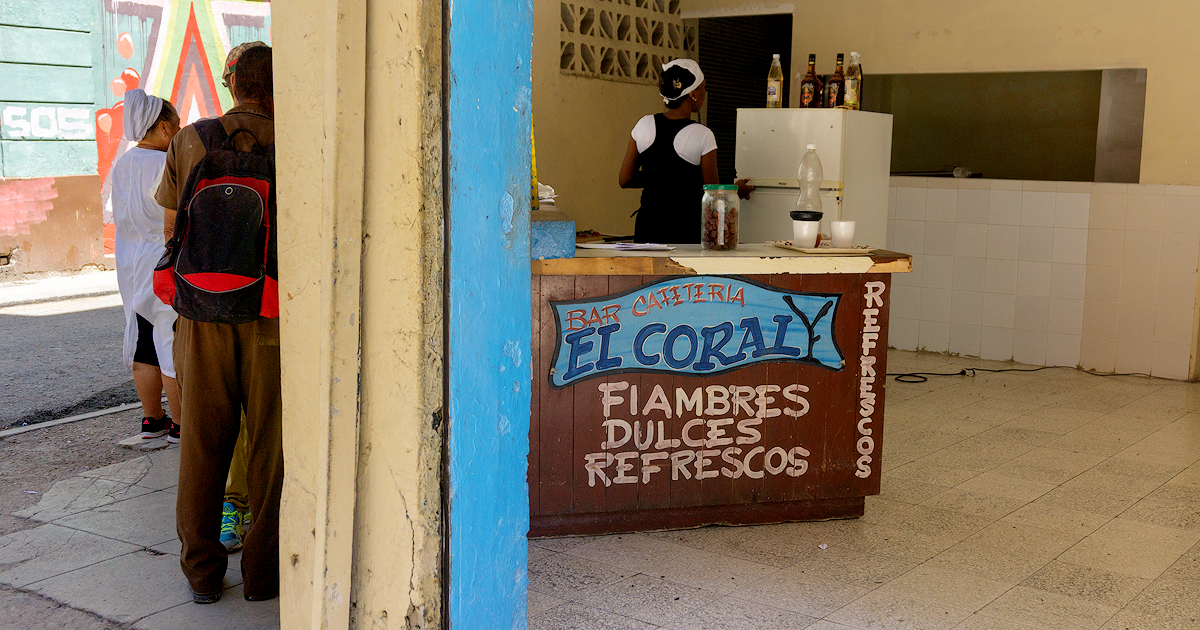The measures announced this Tuesday by the Biden administration to support independent entrepreneurs in Cuba have sparked backlash among voices from the island's civil society. Amid skepticism and open criticism, several Cuban activists have expressed their views on a policy shift aimed at increasing support for private sector entrepreneurs and promoting internet freedom on the Island.
Reactions from Cuban Activists
"Dozens of human rights activists in Cuba have wasted our time meeting with U.S. officials, trying to show them that this is NOT the way," said Saily González Velázquez on her social media. The young former entrepreneur and activist, who was forced into exile due to repression, defended that "access to economic rights cannot be prioritized over human rights."
"Simply because, in a dictatorship, the former hinders the achievement of the latter," González Velázquez noted. She argued that the approved measures further isolate the victims of the Cuban regime and ignore "the aspirations of Cubans, distancing them from what hundreds of thousands shouted in the streets on July 11th, and continue to shout in every public protest despite increasing and brutal repression."
"Today, the most vulnerable Cubans, those whose wages are insufficient to access private sector products, those who bang pots and shout for freedom during blackouts, the families of political prisoners, and those expelled from state and private companies for expressing themselves, feel a bit lonelier and more isolated," she concluded.
Independent journalist José Raúl Gallego echoed these sentiments, accusing the Directorate General of Intelligence (DGI) of the Cuban regime and their lobbyists in the U.S. of pressuring the Biden administration to approve measures that will facilitate "the operation and enrichment of their frontmen disguised as the private sector."
"If these measures were accompanied by a willingness to freeze funds of companies linked to the regime or involved in severe human rights violations, they might function as a form of containment, but there doesn't seem to be any will for that," the journalist said, citing examples of the current administration's leniency in the face of repressive behavior by Cuban "businessmen."
Gallego expressed pessimism regarding the policy change, predicting that in the remaining months of his term, Biden will "continue taking measures in favor of the regime, including removing it from the list of state sponsors of terrorism."
"The damage caused by the Cuban dictatorship, primarily to its own people but also to the United States, the continent, and the world, won't be resolved by giving them money, which they will use to strengthen themselves instead of benefiting the people. Freedom and democracy are the solutions... Only people in the streets, as happened on July 11th, can stop what's happening," he added.
Voices Against the Measures
Activist Adelth Bonne Gamboa voiced his strong opposition to the measures aimed at "supporting the people of Cuba." "As a Cuban who needs to live in a free country," he reminded Biden that there is no private sector in Cuba, only a communist dictatorship that disguises its frontmen and militants as entrepreneurs.
"Once again, your administration will give oxygen to our captors, allowing them more funds in their accounts to buy more repressive weapons to use against the oppressed people who no longer have the strength to reason," Bonne Gamboa criticized.
For poet and activist Ariel Maceo Téllez, "the Cuban regime could receive 500 billion dollars every week, and they would pocket it as quickly as it comes in. It doesn't matter if the money is for SMEs, hospitals, or power plants; the regime will suck up every dollar, one by one."
In response to the Cuban regime's statement calling the Biden administration's measures "limited" and promoting the slogan "Cuba is one," a user identified as Camagüey on social media translated the message as: "GAESA is one, and we will find a way to be the only beneficiaries of the measure."
Attorney Eloy Viera Cañive argued that the measures aimed at supporting entrepreneurship had multiple interpretations. On one hand, they "demonstrate the persistent intention of this administration not to negotiate but to concede," and on the other hand, "they are concessions that seem unlikely to surpass the realm of political symbolism."
"The most concrete aspect, the possibility for Cubans to open and operate bank accounts in the U.S., is an 'aspiration' of the administration but not a mandate that is inoperative in a mostly private financial system that will carry out a risk-benefit assessment," he reasoned.
Additionally, U.S. financial institutions will weigh the possibility that this "opening" may not last beyond eight months, given the upcoming elections in the United States and potential changes in that scenario.
"In summary, this seems more like a political maneuver to fulfill campaign promises in the final stretch of an administration than a move aimed at driving real changes in an increasingly entrenched Cuban regime," Viera Cañive concluded.
FAQs on Biden Administration's Measures for Cuban Entrepreneurs
To provide more clarity on the recent measures announced by the Biden administration to support Cuban entrepreneurs, we have compiled some frequently asked questions and their answers.
What are the new measures announced by the Biden administration?
The new measures aim to increase support for Cuban private sector entrepreneurs and promote internet freedom on the Island.
Why are Cuban activists critical of these measures?
Cuban activists argue that the measures further isolate victims of the Cuban regime and ignore the aspirations of the Cuban people, prioritizing economic rights over human rights.
How do the measures affect the Cuban regime?
Critics believe the measures will facilitate the operation and enrichment of regime frontmen disguised as private sector entrepreneurs, strengthening the regime instead of benefiting the people.
What could make these measures more effective?
Some suggest that freezing funds of companies linked to the regime or involved in severe human rights violations could make these measures more effective as a form of containment.
